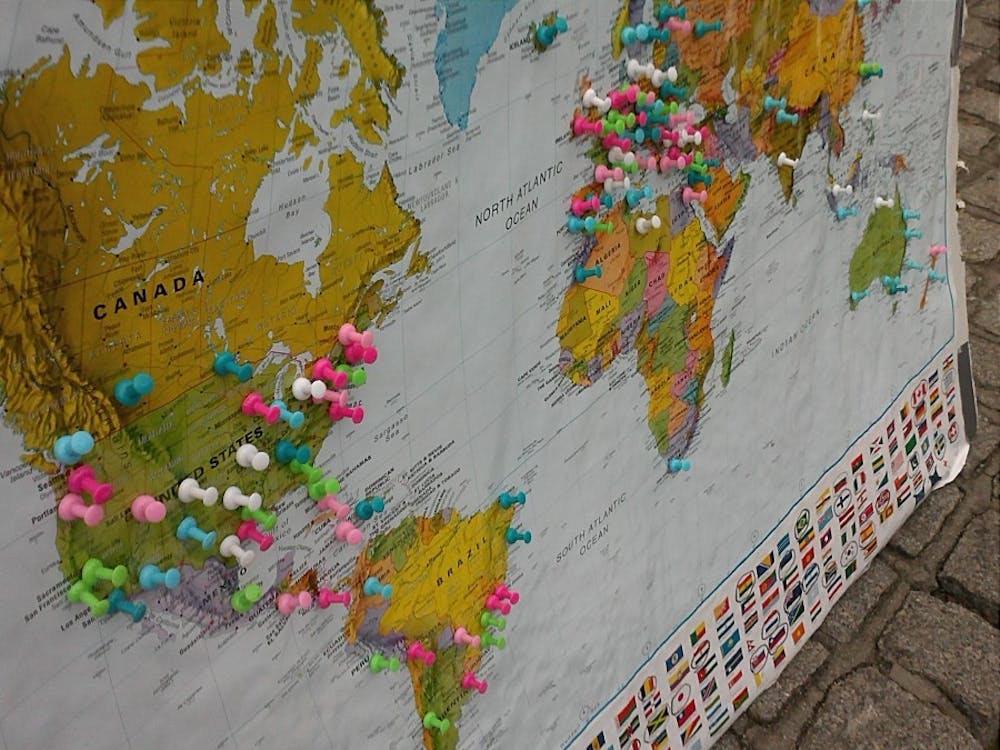By Emily Culberson, For The Miami Student
International students represent 7.9 percent of the class of 2019, according to the Office of International Recruitment and Support Services. This makes the first-year class not only the largest in Miami's history, but also the most culturally diverse.
Aaron Bixler, associate director of International Recruitment and Support Services, believes the presence of international students is a vital part of the Miami experience.
"The enrollment of international students is part of the overall admission enrollment goal," Bixler said. "When the international students arrive, they bring different perspectives [and] are really bringing the world to Oxford in a lot of ways."
Of the more than 70 nationalities represented on campus, about 80 percent of international students at Miami call China home. But this year, several countries made their way into the application pile for the first time, including Botswana and Pakistan.
Miami's Office of Admission has established many programs aimed toward recruiting international students.
"[Miami admissions representatives] visit high schools where we think students would be good fits for Miami," Bixler said. "We do virtual events, host international high school counselors on campus and [hold] online fairs to reach out to students who may not be able to visit."
Toby Yang, a first-year from China, said that at home, he felt programs like these influenced him to come to the United States to get his degree.
"In China, students are encouraged to go abroad for their undergraduate," Yang said. "A lot of students go abroad with help from an agency. They help you to choose a school, edit your [college essay] and tell you how to pay for tuition."
Domestic students Katie Milders, a first-year native of Oxford, believes that the Miami experience wouldn't be as meaningful without the presence of international students.
"I think Miami would be a completely different place if we didn't have international students," Milders said. "Interacting with people that have different experiences definitely changes your perspective on how you go about your daily life."
However, over the last few weeks, Milders has also noticed that making connections with international students isn't always easy.
"It's sometimes hard to interact with [international students] because they [often] stick together," Milders said. "It's hard to make friendships with them because they kind of stay to themselves."
Likewise, Yang noted that living in a new country does make some interactions with American students difficult.
"[The hardest part about going to school in the U.S. is] the cultural differences," Yang said. "Some action in China might be good or polite and that action in American is rude or ignorant. If I do something rude I may not know that because in China it's not."
One of these cultural differences Yang has been grappling with is the American relationship between student and professor.
"Usually a teacher [in China] will not give you such a friendly attitude," Yang said. "The [relationship is] respectful, there's a distance between student and teacher. Now, I'm gradually getting along with my professors."
But despite the challenges, Yang appreciates the opportunity that Miami provides him.
"Here, I can get a new start," Yang said. "A new beginning."

